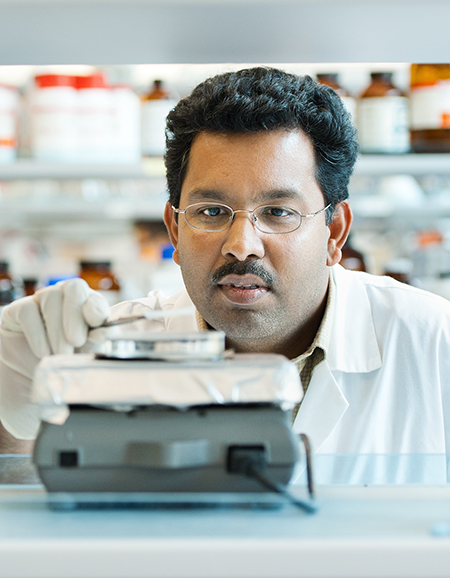What do you do when a patient needs a blood transfusion but you don’t have their blood type in the blood bank? It’s a problem that scientists have been trying to solve for years.
Scientists at the UBC Centre for Blood Research now believe they have hit upon an economically-sound strategy: an enzyme that snips off the antigens found in Type A and Type B blood, making it more like Type O. Type O blood is known as the universal donor type, and can be given to patients of all blood types.
The defining difference between A, B and O blood types is the presence of slightly different antigens (sugar structures) on the outside of the red blood cells of each type. Type A and B blood cells each have a single additional sugar attached to their surface.
“We produced a mutant enzyme that is very efficient at cutting off the sugars in A and B blood, and is much more proficient at removing the subtypes of the A-antigen that the parent enzyme struggles with” said David Kwan, the lead author of the study and a postdoctoral fellow in the Department of Chemistry.
To create this high-powered enzyme capable of snipping off sugars, researchers used a new technology called directed evolution that involves inserting mutations into the gene that codes for the enzyme, and selecting mutants that are more effective at cutting the antigens. In just five generations, the enzyme became 170 times more effective.
With this enzyme, Jayachandran Kizhakkedathu, an Associate Professor in the Department of Pathology and Laboratory Medicine, were able to remove the wide majority of the antigens in Type A and B blood. But before it can be used in clinical settings, the enzyme used would need to remove all of the antigens. The immune system is highly sensitive to blood groups and even small amounts of residual antigens could trigger an immune response.
“The concept is not new but until now we needed so much of the enzyme to make it work that it was impractical,” says Steve Withers, a professor in the Department of Chemistry. “Now I’m confident that we can take this a whole lot further.”
The study was published in the Journal of the American Chemical Society and was supported by the Canadian Institutes of Health Research and Canadian Blood Services.
